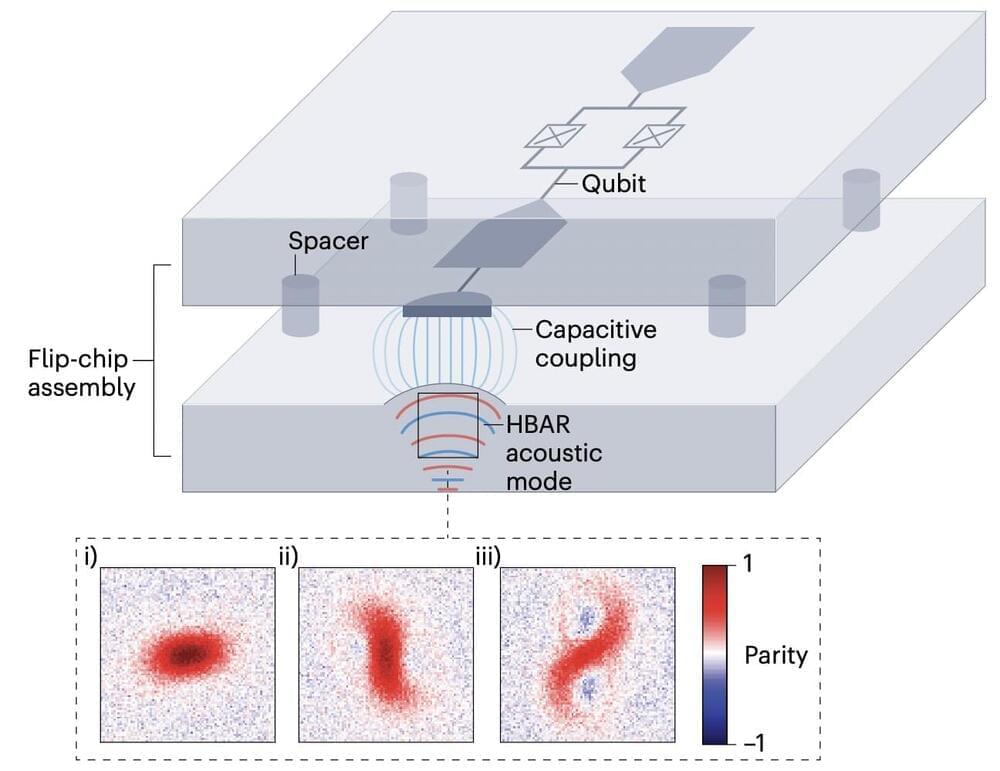Mechanical systems are highly suitable for realizing applications such as quantum information processing, quantum sensing and bosonic quantum simulation. The effective use of these systems for these applications, however, relies on the ability to manipulate them in unique ways, specifically by ‘squeezing’ their states and introducing nonlinear effects in the quantum regime.
A research team at ETH Zurich led by Dr. Matteo Fadel recently introduced a new approach to realize quantum squeezing in a nonlinear mechanical oscillator. This approach, outlined in a paper published in Nature Physics, could have interesting implications for the development of quantum metrology and sensing technologies.
“Initially, our goal was to prepare a mechanical squeezed state, namely a quantum state of motion with reduced quantum fluctuations along one phase-space direction,” Fadel told Phys.org. “Such states are important for quantum sensing and quantum simulation applications. They are one of the gates in the universal gate set for quantum computing with continuous-variable systems—meaning mechanical degrees of freedom, electromagnetic fields, etc., as opposed to qubits that are discrete-variable systems.”
